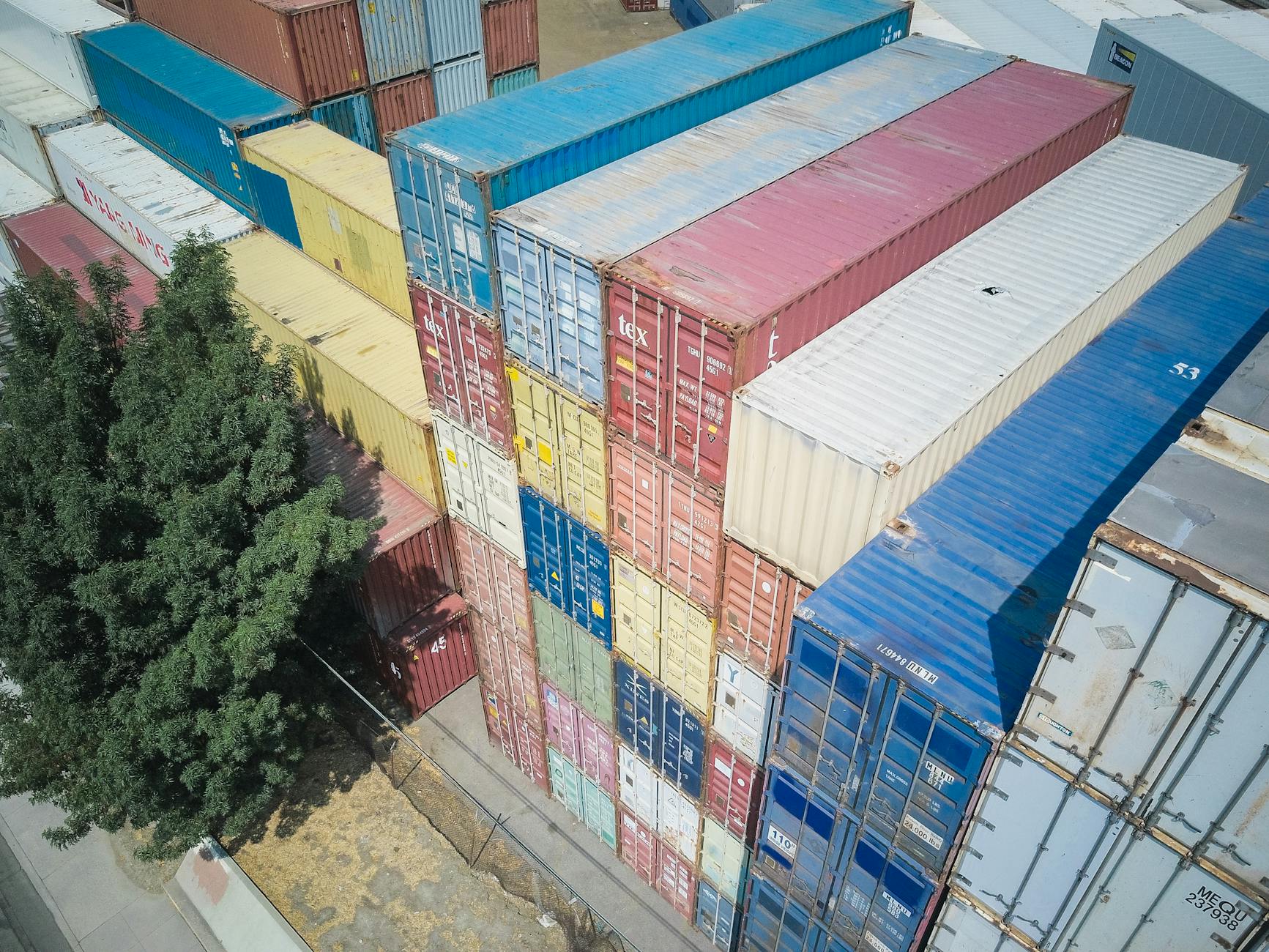How to Optimize Supply Chain Efficiency in Australia

Assess Current Operations
Conducting a Process Audit
As a logistics professional in Melbourne, the heart of Australia's supply chain network, regularly conducting a process audit is essential. With the complexity of operations near the Melbourne Port, assessing every component, from order fulfillment to pick packing, ensures that each link in the chain functions seamlessly. Start by reviewing current workflows and compare them against industry benchmarks. This effort will help in identifying areas where technology can bring about significant efficiencies.
Identifying Bottlenecks
Bottlenecks can severely impact the speed and efficiency of supply chains. In a bustling logistics hub, recognizing these choke points early is crucial. Look through key operational areas to spot slow-moving processes. Whether it's in warehousing or during 3pl logistics operations, understanding these constraints will aid in reallocating resources effectively, leading to smoother transitions and reduced delays.
Measuring Performance Metrics
Accurate measurement of performance metrics is fundamental to maintaining high standards in supply chain management. Focus on key indicators such as order accuracy, real-time stock levels, and delivery times. Regularly analyzing these metrics helps in maintaining transparency and aligning operations with business goals. This practice not only enhances decision-making but also strengthens your case when advocating for technological investments.
The implementation of these strategies will empower you to navigate the complexities of Melbourne's dynamic logistics environment, ensuring that operations remain agile and competitive.
Implement Technology Solutions
Exploring Automation Options
In the bustling logistics landscape of Melbourne, efficiency is no longer just a goal—it's a reality driven by innovation. Recent advancements in ecommerce logistics highlight the role of automation as a key player in optimizing supply chain processes. Technologies like robotic picking systems and autonomous vehicles can drastically cut down manual labor time, reducing errors and increasing throughput. Melbourne, with its tech-savvy firms in the Docklands precinct, is a fertile ground for adopting such solutions.
Real-Time Inventory Tracking
Keeping track of inventory in real-time is indispensable for staying competitive. Imagine seamlessly monitoring stocks as they move through the supply chain, right from the Melbourne Port operations to your warehouse. Implementing RFID tags and IoT devices ensures stock levels are constantly updated, reducing stockouts and overstock situations. The dynamics of pick and pack operations change significantly with real-time updates, as they allow for precise forecasting and informed decision-making.
Data Analytics for Decision-Making
Data analytics is the brain behind intelligent supply chain management. By leveraging analytics tools, it's possible to transform vast amounts of raw data into actionable insights. This empowers logistics coordinators to predict trends, plan efficiently, and mitigate risks. Integrating these analytics with real-time data from your operations around Melbourne ensures you are always ahead in decision-making—leading to enhanced operational efficiency and reduced costs.
Enhance Warehouse Management
Adopting Advanced Picking Systems
As someone deeply invested in logistics, I understand the need for efficient systems to optimize warehouse operations in Melbourne. One significant way to elevate these operations is through the adoption of advanced picking systems, such as robotic pickers. By implementing these technologies, we can significantly reduce picking errors and improve order accuracy. It's like harnessing the expertise found in logistics hubs near Melbourne Airport, where cutting-edge practices are standard. Embracing these systems ensures that we’re always a step ahead in streamlining processes.
Streamlining Layout Design
Optimizing the layout design of your warehouse is another crucial step in enhancing efficiency. I recommend analyzing your existing setup and relocating high-demand items closer to dispatch areas, reducing transit time. Imagine the difference this could make in a bustling Melbourne warehouse; it’s akin to minimizing congestion in the Docklands precinct. Efficient layout planning not only speeds up operations but also minimizes wear and tear on machinery.
Workforce Training and Development
Training is essential to leverage these advanced systems fully. Investing in workforce training and development, especially for team members less familiar with new technologies, ensures smooth transitions and maximizes productivity. A well-trained team can adapt quickly to the shifts in logistics, much like the seamless operations at Melbourne Port. This approach empowers your team to manage and utilize third party logistics solutions effectively. This might include collaborations with 3pl providers to incorporate their expertise into your operations to boost overall performance.
Partner and Supplier Collaboration
Building Strong Relationships
Establishing robust relationships with partners and suppliers is crucial for optimizing logistics operations. In the bustling environment of Melbourne's logistics hubs, it's essential to foster connections that are reliable and mutually beneficial. By leveraging networks within the industry, you can share resources, insights, and innovative approaches that elevate operational efficiency. This collaboration could revolve around shared objectives, such as improving order fulfilment times or reducing transport delays. Actively engaging with your partners in regular forums and workshops can create a culture of continuous improvement.
Effective Communication Strategies
Clear and consistent communication is the backbone of successful partnerships. When working with suppliers and partners, especially those connected to Melbourne Port operations or tech firms in the Docklands precinct, it is critical to establish streamlined communication channels. Consider using integrated communication platforms that allow real-time updates and feedback. Make use of scheduled check-ins and performance reviews to address any concerns and to brainstorm new ideas. Transparency in communication fosters trust and helps prevent misalignments that can create inefficiencies.
Joint Process Improvements
Collaboration goes beyond mere interaction; it involves co-developing strategies to improve operational processes. Use commonly shared data tools and analytics to identify inefficiencies and development areas. Working jointly with suppliers to enhance specific processes can lead to significant efficiency gains. For instance, collaborating on logistical strategies could result in shared investments in cutting-edge technologies. These alliances not only refine methods but also strengthen your position in the competitive Melbourne logistics sector.
Common Pitfalls in Supply Chain Optimization
Dismissing Team Input
In the logistics industry, team members are vital conduits for operational insights. Ignoring their feedback can lead to significant supply chain disruption. At Melbourne Port, frontline workers often spot inefficiencies that management might miss. Regularly soliciting their opinions fosters a culture of continuous improvement and innovation, ultimately enhancing overall productivity.
Ignoring Technological Advancements
Melbourne's Docklands precinct is teeming with tech innovations that offer competitive advantages. Yet, some businesses still cling to outdated systems, ignoring available upgrades that could bolster efficiency. Embracing the latest in technology solutions, such as advanced bulk material handling systems, allows your business to remain agile and responsive to market demands. Ensuring your tech stack evolves regularly aids in avoiding costly inefficiencies.
Inadequate Risk Management
Supply chain risks, especially in an established hub like Melbourne with its rapid transport networks and shipment pathways, necessitate proactive mitigation strategies. Failing to manage risks can lead to unexpected disruptions, from sudden shifts in demand to external emergencies. Incorporating a robust risk management plan, including regular assessments, helps predict potential issues and enact backup plans, safeguarding the continuity of operations.
By heeding these efficiency pitfalls and implementing streamlined strategies using cutting-edge technology and employee insights, professionals in the logistics sector can achieve superior performance, thereby facilitating smoother operations across Melbourne's intricate supply networks.


